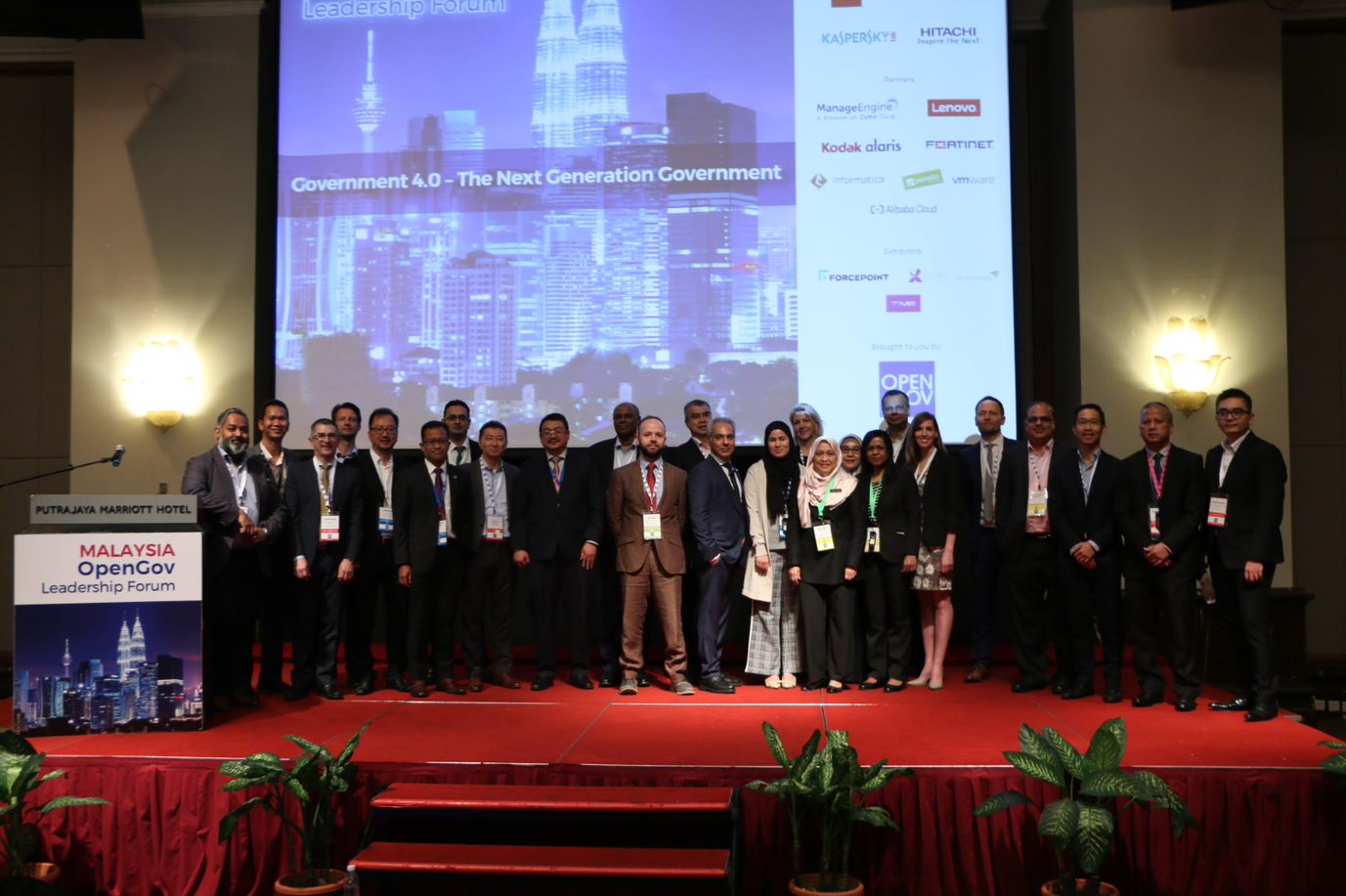
The 5th Annual Malaysia OpenGov Leadership Forum 2019 held on April 11th brought together over 300 participants from national and state government ministries, agencies, departments along with healthcare and education sectors to exchange ideas and experiences.
It was a day filled with stimulating round-table discussions with innovative gamification methods, engaging panels and insightful talks by local and international leaders in public sector ICT.
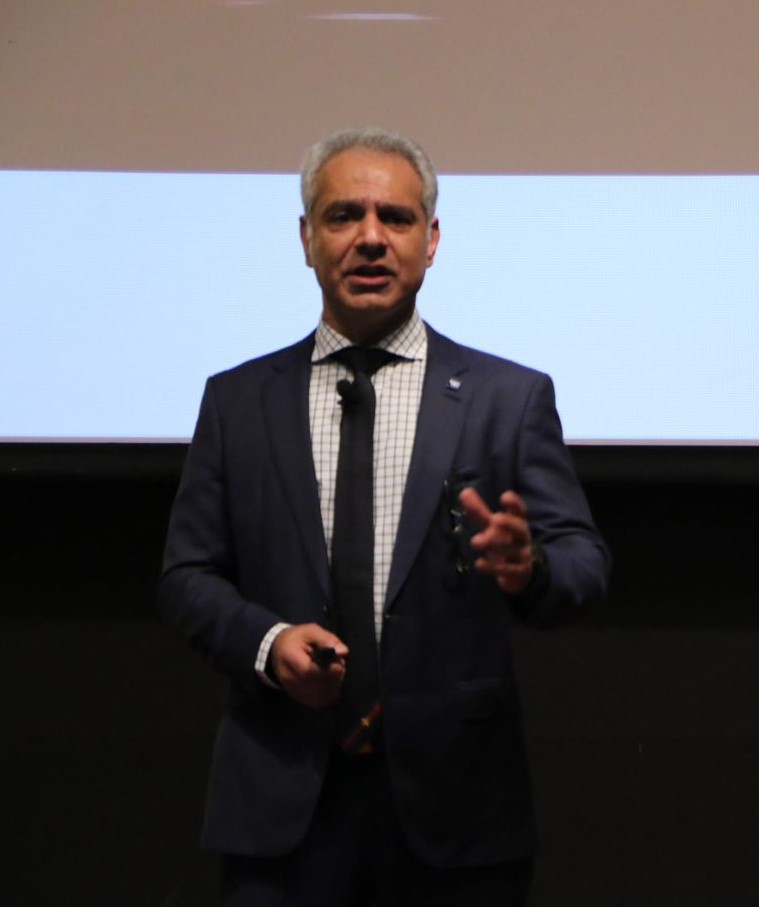
Opening Remarks
Good leadership leads from the front
OpenGov Asia Group Managing Director and Editor-in-chief, Mohit Sagar, started proceedings with his insightful and thought-provoking presentation.
He noted that good leadership commands from the front and does not direct from ivory towers, far removed from reality. Moreover, leadership demands better levels of transparency and giving access.
Mohit delved into the issues of data and data-privacy and the trend of leaders choosing not to share the data and instead hide behind the data. He urged ICT executives to be the leaders that lead their teams by example, walk the talk and transform their organisations.
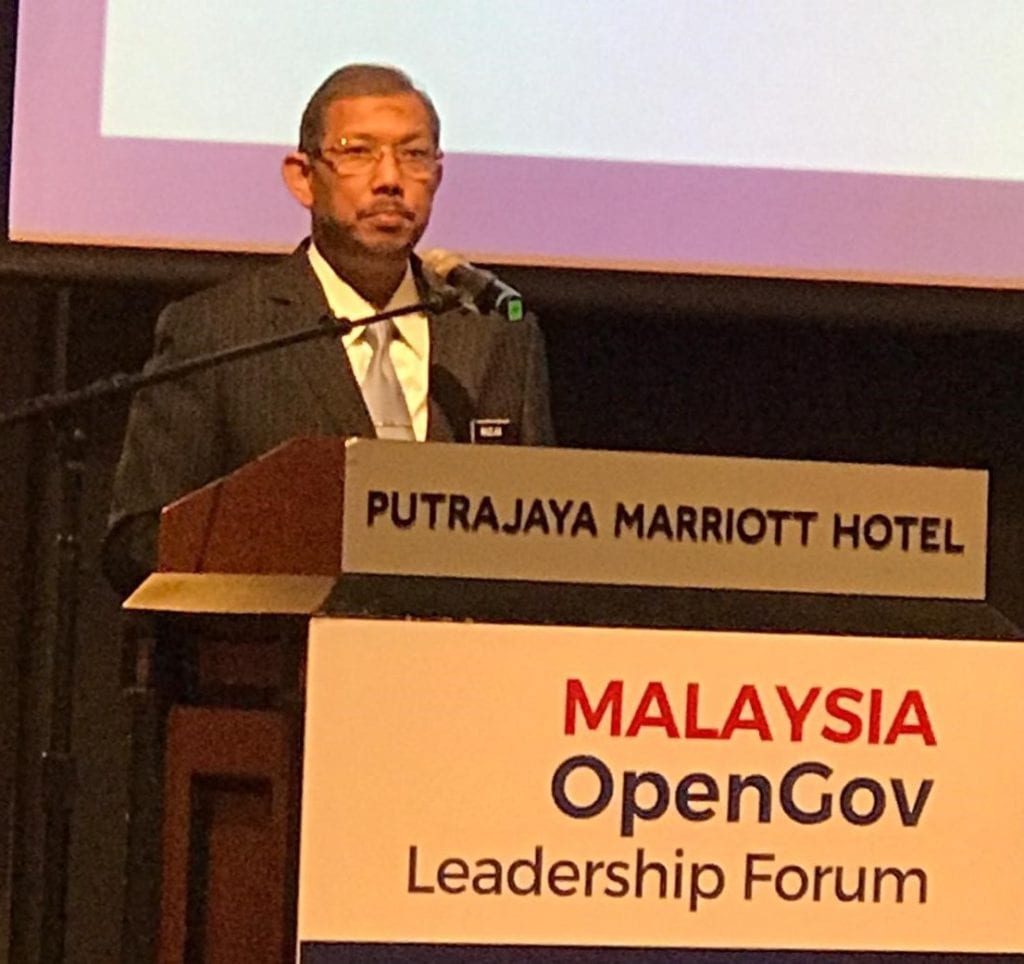
Keynote Address
Malaysian Government’s digitalisation agenda will address connected government and connected citizens
Dato’ Mazlan shared that government’s digitalisation strategy – Connected Government and Connected Citizens – would focus on four areas.
The four areas are: increasing the availability of online government services, focusing on becoming a fully digitalised government and a smart nation, fostering a data-driven government and, focusing on the optimising the sharing of services and strengthening cybersecurity.
The Director-General also noted that the Malaysian government has also implemented the underlying infrastructure or platform to share data among agencies through the Government Information Sharing Hub (myGDX), which provides data brokerage services for data that is often referred by agencies to enable them to serve their customers better.
Dato’ Mazlan concluded his address by saying that if the Malaysian government is to accomplish all that it has set out to do, it will need to institute appropriate governance and legal framework, enhance digital skills, boost digital government efficiency and integrate Artificial Intelligence to design Intelligent Business Processes.
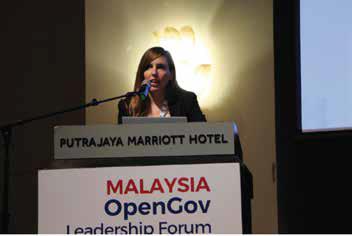
Digital Government Extends Beyond Electronic Service Delivery and Self-Service – Canada
Pascale Elvas, Founding Member of Canadian Digital Service and Senior Director, Centre for Gender Inclusive Service, Treasury Board of Canada Secretariat shared Canada’s inspiring digital government journey.
In her presentation, Pascale shared the Canadian government’s digital approach and how it has changed over the years, moving from policy-oriented service delivery to user-driven service design.
One of the highlights of Pascale’s address was the concept of “invisible government” – a government that is so effective in what it does that citizens do not even know that it is there.
Pascale concluded her address by urging the delegates to exercise caution while designing a service. Services should not be a solution looking for a problem but focus on user needs instead.
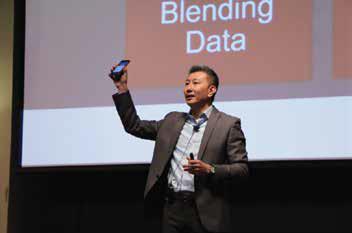
Data – The Path to Intelligent Innovation in the Public Sector – Hitachi
KC Phua, Core Storage & Data Protection Lead-Asia Pacific from Hitachi Vantara took the stage to highlight the importance of data and how data can be a government agency’s most strategic asset.
How data is managed, accessed, secured and analysed is critical to the success in generating new revenue streams, better customer experiences and making a difference for the people being served and protected.
KC Phua stressed the importance of blending data, stating that executives need to filter, structure, combine and blend data. This will lead to the ability to connect the dots if data is to be of any use.
He talked about Hitachi’s Data Stairway to Value and shared real case studies where organisations had successfully gone through this transformation journey using Hitachi Vantara’s Data Stairway.
KC noted that if data is to be monetised, organisations must first Store, Enrich and Activate data. Monetisation will be the culmination and outcome of these preceding steps.
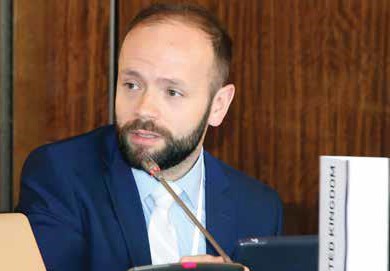
Transforming the relationship between state and user – United Kingdom
Chad Bond, Deputy Director – Standards Assurance from Government Digital Service (GDS), United Kingdom talked about how the UK has been transforming its relationship between the user and the state in the fourth presentation of the event.
GDS was created to make government simpler, clearer and faster and work better for users. He noted that GDS to put user needs first and then prioritise them. Upskilling was a vital part of the transition. It wasn’t just about moving websites; it was also about training people in those organisations how to use the new website.
One of the important highlights of Chad’s presentation was a reference to Digital marketplace and Gov Wifi which helps the civil servants to do their work better.
Chad wrapped up his presentation by reminding the delegates how GDS created and built one consistent user experience for government, saving £1.7 billion through digital and technology transformation.
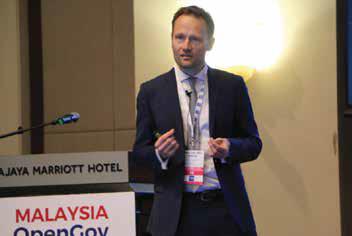
Putting people at the heart of all AI deployments – Denmark
Adam Grønlykke Mollerup, Head of Department, Danish Ministry for Environment and Food, Agricultural Agency spoke about using AI and open data to drive service development.
During the course of his presentation, Adam pointed out that AI was used to automate the decision-making process based on the data and hence the need to make sure that the algorithms and the predictability are transparent.
Adam concluded by advising the delegates to focus on building capabilities to address this, to focus on core problems and issues at hand, to have the agility to recompose and rethink the fundamentals and finally to be able to act on these built capabilities and put people at the heart of it.
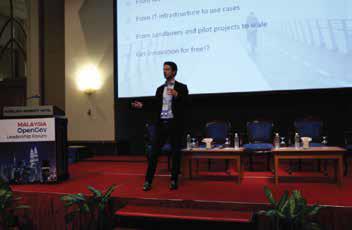
The role of PPPs in shaping Smart Cities – Copenhagen
Marius Sylvestersen, Smart City Program Manager from Copenhagen Solutions Lab, City of Copenhagen elaborated on shaping cities of tomorrow and how the public sector can drive successful public-private partnerships. The evolving role of public-private partnerships in shaping smart and sustainable cities is profound. These alliances have the potential to achieve far-reaching impacts over time.
Marius concluded by expressing the hope that the example of Copenhagen solutions lab would inspire Malaysian public sector to forge public-private partnerships. He exhorted the government to know these technologies first hand and to utilise these enabling technologies to better serve its citizens.
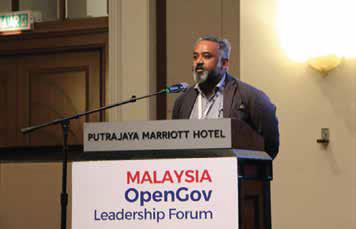
Developer portals can help to better use data – Victoria
Jithma Beneragama, Executive Director – Digital, Design and Innovation, Department of Premier and Cabinet, Victoria took the stage as the last speaker of the day.
Jithma’s presentation focused on two case studies from the state of Victoria and talked about “A gateway to the better use of data”.
Jithma wrapped up his presentation by sharing how Victoria has developed a new developer portal which was launched earlier this year. Through this service, internal government developers and the community will see different catalogues.
The developer will be able to see all the government APIs and would allow them to innovate how they are approaching service delivery.
The key takeaway was that including, educating and relating with citizens should be the number underpin all government initiatives. Additionally, a holistic approach that manages all the three pillars – People, Process and Technology – is critical to success of government services.
















